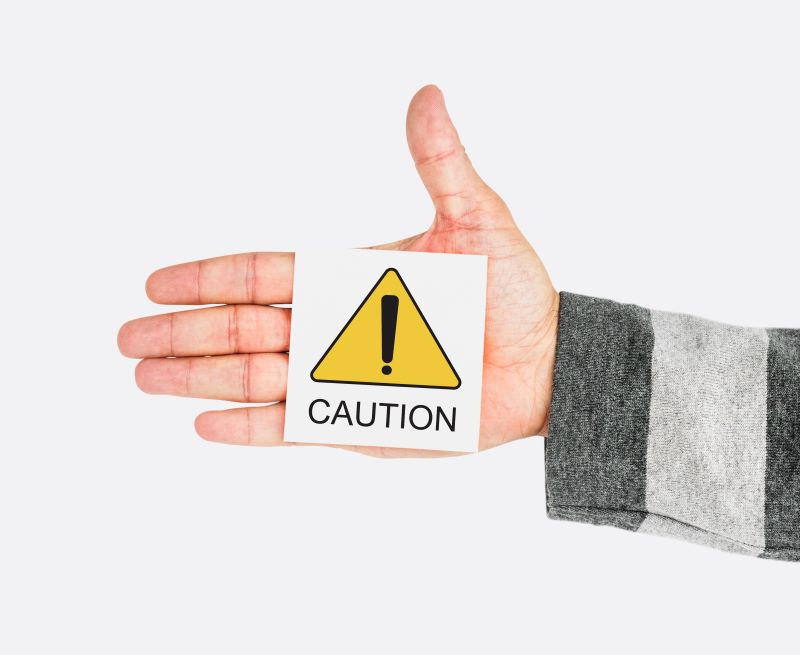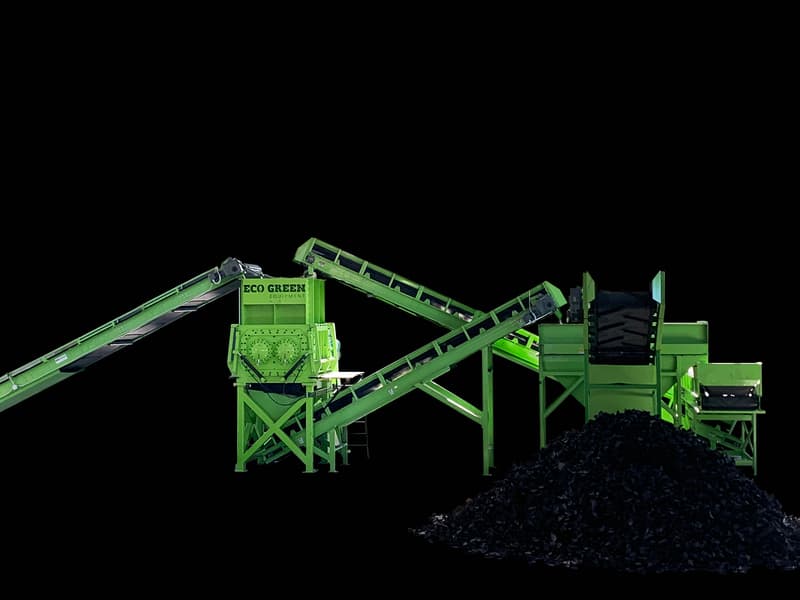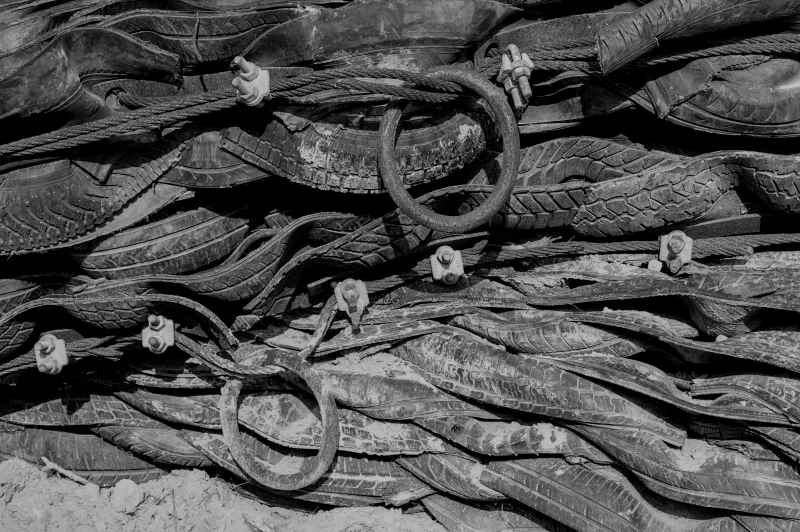Burning tires might seem like an unusual activity, but it happens more often than you might think. Some people resort to tire burning as a quick way to get rid of unwanted waste, unaware of the serious consequences. Despite its simplicity, tire burning is a hazardous process.
Tires are made primarily of rubber, which requires significant heat to ignite. Once they catch fire, they burn with intense heat and produce large, persistent flames. This is due to the high energy content in the tire’s materials, including rubber, steel, and fabric.
However, tire burning is dangerous because of the toxic cocktail of chemicals released into the air. As tires burn, they emit harmful smoke and pollutants that pose severe risks to public health and the environment. We’ll delve into those health and environmental impacts and explore a safer, more responsible alternative for disposing of tires.
Health Risks Linked to Burnt Tire Exposure
The dangers of exposure to burnt tire smoke extend far beyond the immediate discomfort of inhaling thick, black fumes. The chemicals released during tire burning carry severe health risks that can have lasting consequences.
Toxic Fumes
Tire smoke is loaded with an array of hazardous chemicals that invade your lungs with every breath. One of the most dangerous of these is the well-known carbon monoxide, a colorless, odorless gas that can be deadly when inhaled in large amounts. But carbon monoxide is just the beginning.
The smoke also contains volatile organic compounds like benzene and styrene, which are notorious for causing a variety of long-term health problems.
Tire smoke is even tainted with heavy metals such as lead, cadmium, and mercury, which can accumulate in your lungs and other organs. The presence of these dangerous substances makes tire burning a significant public health hazard, particularly for those with prolonged exposure.
Long-Term Health Effects
The impact of exposure to burning tires is not something to be taken lightly. It’s a silent but deadly threat. It’s not just about breathing in smoke. It’s about the slow, harmful buildup of toxins in the body that can cause life-altering health conditions.
Respiratory Issues
Inhaling the toxic fumes from burning tires can wreak havoc on the respiratory system. The chemicals in the smoke are irritants that can inflame your airways, leading to conditions like asthma and bronchitis. These conditions reduce lung function and can make every breath a struggle.
Cancer
But the dangers of tire smoke don’t end with immediate respiratory distress. The toxic substances released are known as carcinogens, meaning they can cause cancer. Lung cancer is a particularly serious risk, especially given the similarities between the risks of tire smoke and the well-documented dangers of cigarette smoking. We need to be equally wary of the risks posed by inhaling tire smoke as we are by those of tobacco smoke.
Cardiovascular and Reproductive Issues
The chemicals in tire smoke can also contribute to cardiovascular diseases, leading to heart attacks and strokes. Exposure to these toxins has been linked to reproductive issues, including birth defects and infertility.
Environmental Damage and Community Health
The thick, toxic smoke released from burning tires pollutes the air, and these pollutants don’t just disappear—they settle into the environment, contaminating soil and water, infiltrating the food chain, and ultimately affecting human health. The harmful substances that have contaminated the soil and water sources harm crops and aquatic life, so those chemicals can end up in the food we consume.
Safe Alternatives to Tire Burning
Tire recycling is a safe and eco-friendly solution for disposing of old tires that might clutter your home or yard. At a tire recycling plant, these discarded tires are processed, and their materials are repurposed into valuable new products. Recycled tires can be made into items like playground surfaces or asphalt for roads using a rubber tire shredder. They can even be remade into new tire products.
The many benefits of tire recycling include reducing environmental pollution by preventing tires from ending up in landfills or being burned. The recycling process also conserves natural resources, reduces waste, and cuts down on greenhouse gas emissions, contributing to overall environmental sustainability.
The dangers associated with burning tires are alarming, ranging from immediate respiratory problems to long-term risks like cancer. The thick, toxic smoke released during tire burning not only jeopardizes human health but also exacerbates environmental issues.
Given these significant risks, it’s imperative that we all make safer, more responsible choices when it comes to waste tire disposal. Recycling old tires is crucial in protecting both our health and the planet.
Tire recycling minimizes waste, reduces pollutants, and lowers the risks associated with improper tire disposal. By repurposing tires, recycling offers a practical and eco-friendly solution.
Choosing to recycle tires is a commitment to a healthier planet and a safer future. We can help reduce environmental pollution and protect our communities from the harmful effects of tire burning.




